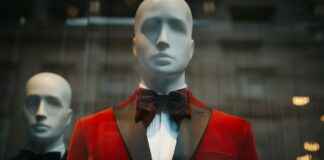Emma Stone’s performance in the film Poor Things has sparked significant discussion, particularly regarding her nude scene. This article dives into the context, public reactions, and the artistic themes surrounding this controversial role, offering a well-rounded understanding of the conversations it has ignited.
Poor Things is a film that intertwines elements of fantasy and social commentary, showcasing a world that challenges traditional norms. Emma Stone plays the role of Bella Baxter, a woman who is brought back to life by an unorthodox scientist. This resurrection sets the stage for her exploration of identity, freedom, and desire. The film’s narrative delves into themes of empowerment and self-discovery, making Stone’s character a pivotal figure in conveying these messages.
The public’s response to Emma Stone’s nude scene has been a mix of admiration and criticism. Supporters argue that the scene is a bold artistic choice that enhances the film’s exploration of female autonomy. They believe it serves to challenge societal expectations regarding women’s bodies in cinema. Conversely, critics express discomfort, citing concerns about the portrayal of nudity and its implications. This division reflects broader societal attitudes towards nudity in film, raising questions about artistic freedom versus audience sensibilities.
Emma Stone’s character in Poor Things embodies several key artistic themes, including rebirth, sexual liberation, and the quest for self-identity. Her nude scene is not merely a moment of shock value; rather, it is integral to the narrative. It symbolizes Bella’s journey towards embracing her body and her desires without shame. The film invites viewers to reflect on the significance of bodily autonomy and the societal constraints often placed on women. Through Bella’s eyes, audiences confront their perceptions of nudity, vulnerability, and empowerment.
Emma Stone’s willingness to engage with complex and controversial material may set a precedent for future roles in Hollywood. As the industry evolves, there is a growing demand for authentic portrayals of women’s experiences, including their sexuality and bodily autonomy. Stone’s performance in Poor Things could inspire other actresses to take on similar roles, pushing the boundaries of what is acceptable in mainstream cinema.
The themes explored in Poor Things resonate with current societal shifts towards greater acceptance of diverse narratives. As conversations around gender equality and body positivity become more prevalent, films like this challenge traditional storytelling and encourage audiences to engage with complex issues. Emma Stone’s role serves as a catalyst for these discussions, prompting viewers to reconsider their own beliefs about nudity and representation in film.
In summary, Emma Stone’s nude scene in Poor Things is a multifaceted topic that intertwines artistic expression with societal commentary. By examining the context of her role, public reactions, and the underlying themes, we gain a deeper understanding of the significance of this performance within the broader landscape of cinema.
Poor Things,
Emma Stone’s role in Poor Things has ignited considerable discussion due to its bold artistic choices, particularly her nude scene. This article aims to provide a comprehensive understanding of the controversy surrounding this scene, examining public reactions, the artistic intent behind it, and the film’s broader themes.
What Is the Context of Emma Stone’s Role in Poor Things?
Poor Things is a film that explores themes of identity, autonomy, and societal norms through the lens of a fantastical narrative. Emma Stone plays the character of Bella Baxter, a woman brought back to life by an unorthodox scientist. This unique premise allows the film to delve into complex discussions about freedom and self-discovery, setting the stage for Stone’s controversial scenes. The film is directed by Yorgos Lanthimos, known for his distinctive storytelling style that often challenges conventional norms.
How Has the Public Reacted to Emma Stone’s Nude Scene?
The public’s reaction to Stone’s nude scene has been mixed, reflecting a spectrum of opinions on nudity in cinema. Many viewers have praised her performance as courageous and necessary for the character’s development, arguing that it enhances the film’s exploration of female empowerment. Conversely, some critics have expressed discomfort, questioning whether such scenes are essential to the narrative. This dichotomy in reactions underscores the ongoing debate about nudity in film and its implications for societal attitudes toward the human body.
What Artistic Themes Are Explored Through Stone’s Character?
Emma Stone’s character in Poor Things embodies themes of rebirth and self-exploration. The nude scene serves as a pivotal moment that symbolizes her journey towards self-acceptance and liberation from societal constraints. Through her character, the film challenges viewers to reconsider their perceptions of femininity and sexuality. The artistic intent behind these scenes is not merely to provoke but to invite audiences into a deeper conversation about the roles women play in society and their right to express their bodies without shame.
How Does Poor Things Reflect Broader Societal Attitudes?
In examining Poor Things, it becomes evident that the film is a mirror reflecting contemporary societal attitudes towards nudity and gender roles. The reactions to Stone’s performance highlight the tension between traditional views and modern perspectives on body image and sexual expression. As the film pushes boundaries, it also encourages a dialogue about the importance of artistic freedom in storytelling.
What Can We Learn from the Controversy Surrounding the Scene?
The controversy surrounding Emma Stone’s nude scene in Poor Things serves as a reminder of the complexities involved in artistic expression. It prompts discussions about the role of nudity in film and its capacity to challenge societal norms. As audiences engage with the film, they are invited to reflect on their own beliefs and biases regarding the human body and the narratives we construct around it.
In conclusion, Emma Stone’s performance in Poor Things is not just a display of vulnerability; it is a powerful statement about identity and freedom. The film’s bold approach to storytelling encourages viewers to reconsider their perceptions and engage in meaningful conversations about art and society.
addressing public reactions, artistic intent, and the film’s themes, providing a comprehensive understanding of the controversy.
Emma Stone’s portrayal in Poor Things has sparked significant discussion, particularly regarding her nude scene. This article delves into the intricacies of this controversial role, examining public reactions, artistic intent, and the overarching themes of the film.
What Is the Context of Emma Stone’s Role in Poor Things?
Poor Things is a film that intertwines elements of fantasy and science fiction, exploring themes of identity and rebirth. Emma Stone plays the character of Bella Baxter, a woman brought back to life by an unorthodox scientist. The narrative challenges societal norms and expectations, setting a provocative stage for Stone’s performance. The film’s unique plot and vibrant visuals create a backdrop that enhances the impact of her character’s journey, making the nude scenes not merely gratuitous but integral to the storytelling.
How Has the Public Reacted to Emma Stone’s Nude Scene?
The public’s response to Stone’s nude scene has been divided. Some viewers commend her for embracing such a bold role, seeing it as a celebration of body positivity and artistic expression. Supporters argue that the scene is essential for understanding Bella’s character and her liberation from societal constraints. Conversely, critics express discomfort, questioning whether such nudity is necessary for the narrative. This dichotomy in reactions reflects broader societal attitudes towards nudity in film, where some see it as empowering while others view it as exploitative.
What Artistic Themes Are Explored Through Stone’s Character?
Emma Stone’s character in Poor Things embodies several artistic themes, including feminism, autonomy, and the exploration of sexuality. The nude scenes serve as a visual metaphor for Bella’s journey towards self-discovery and empowerment. As she navigates her new existence, the portrayal of her body becomes a statement about the freedom to express oneself without the confines of societal judgment. The film invites viewers to consider the implications of nudity as a form of artistic expression, challenging traditional narratives surrounding female representation in cinema.
In conclusion, Emma Stone’s role in Poor Things is a complex interplay of artistic ambition and societal critique. The discussions surrounding her nude scenes highlight the ongoing dialogue about representation and the evolving perceptions of nudity in film. As audiences engage with these themes, it becomes clear that Stone’s performance is not just about the physicality of her role but also about the deeper meanings embedded within the narrative.
What Is the Context of Emma Stone’s Role in Poor Things?
In this section, we delve into the background of the film Poor Things, exploring its intricate plot, thematic elements, and the compelling character that Emma Stone portrays. This film, directed by Yorgos Lanthimos, is an adaptation of Alasdair Gray’s novel, which delves into themes of identity, autonomy, and the human condition.
Poor Things is set in a fantastical Victorian era, where the boundaries of science and morality are continually tested. The narrative centers around the character of Bella Baxter, played by Emma Stone, who is brought back to life by a scientist after her untimely death. This unique premise allows the film to explore profound questions about life, agency, and societal norms. Bella’s journey of self-discovery is not just a personal quest but also a reflection of broader societal issues, making her character a pivotal element in the film.
The film’s plot intricately weaves together elements of dark comedy and surrealism, showcasing Bella’s adventures as she navigates a world filled with eccentric characters and bizarre situations. As she learns to assert her independence, the film challenges traditional gender roles and highlights the struggles of women in a patriarchal society. Emma Stone’s portrayal of Bella is both bold and nuanced, capturing the essence of a woman reclaiming her identity in a world that seeks to define her.
Moreover, the film’s aesthetic choices, from its vibrant color palette to its imaginative set designs, contribute significantly to the storytelling. These elements work in tandem with the narrative to create a visually stunning experience that complements Bella’s journey. The film does not shy away from controversial scenes, including nudity, which serve to emphasize Bella’s liberation and the exploration of her sexuality in a society that often suppresses such expressions.
In summary, the context of Emma Stone’s role in Poor Things is rich and multifaceted. The film serves as a platform for examining critical themes of autonomy, identity, and societal expectations. As audiences engage with Bella’s character, they are invited to reflect on their own perceptions of freedom and self-expression. This exploration sets the stage for understanding the reactions to Stone’s performance and the artistic intent behind the film’s more provocative elements.
Poor Things,
Emma Stone’s performance in Poor Things has sparked considerable discussion, particularly regarding her nude scene. This article delves into the intricacies surrounding this controversial role, examining public reactions, artistic intent, and the overarching themes of the film.
What Is the Context of Emma Stone’s Role in Poor Things?
Poor Things is a unique film that blends elements of fantasy and science fiction. Directed by Yorgos Lanthimos, the story revolves around a woman named Bella Baxter, brought back to life by an unorthodox scientist. Emma Stone portrays Bella, a character that explores themes of identity, autonomy, and societal norms. The film’s narrative challenges traditional perceptions of femininity and empowerment, setting the stage for Stone’s provocative scenes.
How Has the Public Reacted to Emma Stone’s Nude Scene?
The public’s response to Stone’s nude scene has been polarized. Many viewers have praised her for embracing such a bold role, viewing it as a statement of body positivity and artistic freedom. Supporters argue that the nudity serves a purpose in the film, aligning with its themes of liberation and self-discovery.
- Supportive Viewpoints: Advocates for the scene assert that it challenges societal taboos surrounding female nudity in film.
- Critical Viewpoints: Critics, however, argue that the scene may detract from the narrative, questioning whether it is essential to the character’s development.
What Artistic Themes Are Explored Through Stone’s Character?
Emma Stone’s portrayal of Bella is rich with artistic themes. The character’s journey reflects a struggle for independence and the quest for self-identity in a patriarchal society. The nude scenes are not merely gratuitous; they symbolize Bella’s rebellion against societal constraints and her embrace of her own body as a form of empowerment.
Themes Explored in Poor Things:- Identity and Transformation- Female Empowerment- Challenging Societal Norms
These themes are intricately woven into the fabric of the film, with Stone’s character embodying the struggle and triumph of self-acceptance. The nude scene serves as a pivotal moment that encapsulates Bella’s transformation, making it a significant aspect of the narrative.
In conclusion, Emma Stone’s nude scene in Poor Things has ignited a complex discussion about nudity in cinema, artistic expression, and the portrayal of women. As audiences continue to engage with the film, it remains clear that Stone’s role is not just about nudity but rather a profound exploration of identity and empowerment.
including its plot, themes, and the character Emma Stone portrays, setting the stage for her controversial scenes.
Emma Stone’s performance in Poor Things has sparked considerable debate, particularly regarding her nude scenes. This article dives into the intricacies of her role, the film’s overarching themes, and the public’s reaction, providing a thorough understanding of the surrounding controversy.
What Is the Context of Emma Stone’s Role in Poor Things?
Poor Things is a visually striking film that intertwines elements of fantasy and drama. Directed by Yorgos Lanthimos, it follows the story of a woman brought back to life by an unorthodox scientist. Emma Stone portrays Bellatrix, a character who embodies themes of rebirth, identity, and autonomy. Her character’s journey is marked by a quest for self-discovery and empowerment, which is crucial to understanding the context of her nude scenes.
The film explores complex themes such as feminism and sexual liberation, challenging societal norms about women’s bodies and their autonomy. The portrayal of nudity in this film is not merely for shock value; it serves as a narrative device that emphasizes Bellatrix’s journey toward self-acceptance and freedom.
How Has the Public Reacted to Emma Stone’s Nude Scene?
The public’s reaction to Emma Stone’s nude scene in Poor Things has been mixed. Some viewers appreciate the artistic expression and the boldness of Stone’s performance, viewing it as a necessary element of the character’s development. Supporters argue that such scenes can empower women by portraying them as complex individuals rather than mere objects.
- Supportive Viewpoints: Many fans and critics assert that the nude scenes contribute to the film’s artistic integrity, allowing for a deeper exploration of Bellatrix’s character.
- Critical Viewpoints: Conversely, some audiences have expressed discomfort, arguing that nudity in film can perpetuate unrealistic expectations and objectification.
This dichotomy in public opinion reflects broader societal attitudes toward nudity in cinema, showcasing a cultural shift where audiences are increasingly scrutinizing the context and necessity of such portrayals.
What Artistic Themes Are Explored Through Stone’s Character?
Emma Stone’s character in Poor Things serves as a vessel for exploring significant artistic themes. The film delves into the concepts of identity and freedom, with Bellatrix’s journey highlighting the struggle for self-determination in a world that often seeks to control women’s bodies and choices.
Through her character, the film challenges traditional narratives surrounding femininity and sexuality. The nude scenes are integral to this exploration, symbolizing vulnerability, strength, and the reclamation of one’s body. They invite the audience to reflect on the implications of nudity in art and how it can be used to convey profound messages about the human experience.
Ultimately, Emma Stone’s portrayal in Poor Things is a testament to the evolving landscape of cinema, where discussions around nudity, artistic expression, and women’s empowerment continue to unfold. The film not only entertains but also provokes thought, encouraging viewers to engage with its themes on a deeper level.
How Has the Public Reacted to Emma Stone’s Nude Scene?
In recent discussions surrounding the film Poor Things, Emma Stone’s nude scene has sparked a significant amount of debate, drawing both fervent support and sharp criticism from the public. This reaction not only highlights the diverse opinions regarding nudity in cinema but also reflects broader societal attitudes toward body representation and artistic expression.
Many viewers have come to Stone’s defense, praising her for embracing a role that challenges conventional norms. Supporters argue that nudity in film can be a powerful form of artistic expression, allowing actors to convey vulnerability and authenticity. They emphasize that Stone’s portrayal is integral to her character’s journey, suggesting that the nudity serves a narrative purpose rather than being gratuitous. This perspective aligns with the belief that cinema should push boundaries and explore complex themes, including sexuality and identity.
On the other hand, critics of the scene express discomfort, arguing that nudity can detract from the storyline and reduce a character to mere objectification. Some viewers feel that such scenes might perpetuate unrealistic beauty standards and contribute to the sexualization of women in film. This criticism often stems from a broader cultural context where discussions about consent, body image, and representation are becoming increasingly prominent.
The polarized responses to Stone’s nude scene illuminate the ongoing tension between artistic freedom and societal expectations. Supporters argue that nudity should be normalized in cinema as a reflection of human experience, while critics often advocate for more responsible portrayals of nudity that prioritize respect and agency. This dichotomy showcases how public perception of nudity can vary widely based on personal beliefs, cultural background, and generational differences.
Film scholars and critics provide valuable insights into the role of nudity in cinema. Many argue that when executed thoughtfully, nudity can enhance storytelling by adding depth to character development. They point to examples in cinema history where nudity has been used to convey themes of liberation, vulnerability, or rebellion. Experts suggest that the key lies in the context and intention behind the scene, which can either empower or exploit the character portrayed.
The dialogue surrounding Emma Stone’s nude scene in Poor Things serves as a microcosm of larger societal debates about body image, consent, and the role of women in film. As audiences engage with these discussions, it is crucial to consider the implications of their reactions. By examining both supportive and critical viewpoints, we can foster a more nuanced understanding of how nudity is perceived in contemporary cinema.
Ultimately, the public’s varied responses to Stone’s performance reflect a broader conversation about artistic expression and the evolving standards of representation in film. As society continues to grapple with these issues, it will be interesting to see how filmmakers navigate the complexities of nudity and its implications in storytelling.

What Artistic Themes Are Explored Through Stone’s Character?
This section delves into the intricate artistic themes that are woven throughout the narrative of Poor Things, particularly as they relate to the character portrayed by Emma Stone. Through her performance, various themes emerge that resonate deeply with audiences, prompting reflection on broader societal issues.
One of the central themes is identity and transformation. Emma Stone’s character undergoes a profound metamorphosis, symbolizing the struggle for self-discovery in a world that often imposes rigid expectations. This theme is visually represented through her nude scenes, which serve as a metaphor for vulnerability and the shedding of societal constraints. The audience witnesses her journey from a state of confusion to one of empowerment, challenging the traditional narratives surrounding female characters in cinema.
Another significant theme explored is sexuality and liberation. Stone’s portrayal invites viewers to confront their perceptions of nudity and the female form. The film boldly embraces the idea that sexuality can be a source of strength rather than shame. In this context, her nude scene is not merely a provocative choice; it is an essential element that underscores the character’s reclamation of her body and autonomy. This theme resonates with contemporary discussions about body positivity and the right to express one’s sexuality freely.
Furthermore, the theme of societal norms and rebellion is prevalent throughout Poor Things. Stone’s character often challenges the conventions of her society, pushing against the boundaries that seek to define her. This defiance is not just a personal journey; it reflects a collective yearning for change and the breaking down of outdated norms. The artistic representation of her rebellion is accentuated through her nudity, as it visually signifies a rejection of societal expectations.
In addition to these themes, the film also touches on feminism and empowerment. Stone’s character embodies the fight for female agency in a patriarchal world. Her journey is emblematic of the struggle many women face in asserting their independence and identity. The nudity in her scenes serves as a bold statement of ownership over her body, challenging the audience to reconsider their views on female representation in film.
Through careful character development and visual storytelling, Poor Things presents a rich tapestry of artistic themes that are both relevant and thought-provoking. Emma Stone’s performance is pivotal in bringing these themes to life, making her character a vessel for exploring complex issues of identity, sexuality, and societal expectations. The artistic choices made throughout the film invite viewers to engage in meaningful conversations about these topics, ultimately enriching the cinematic experience.
Poor Things,
Emma Stone’s role in Poor Things has sparked significant discussion, particularly regarding her nude scene. This article delves into the context of the film, public reactions, and the artistic themes that emerge from Stone’s character, providing a comprehensive understanding of this controversial role.
What Is the Context of Emma Stone’s Role in Poor Things?
Poor Things is a film that intertwines elements of fantasy and drama, exploring themes of identity, autonomy, and the human experience. Emma Stone portrays Bella Baxter, a woman brought back to life by an unorthodox scientist. The narrative challenges societal norms and expectations, particularly regarding femininity and sexuality. Stone’s character is pivotal in navigating these themes, making her nude scene not merely a provocative choice but a significant narrative device.
How Has the Public Reacted to Emma Stone’s Nude Scene?
The public’s response to Stone’s nude scene has been mixed. Some viewers have praised the artistic bravery and the film’s willingness to explore nudity as an expression of freedom and self-discovery. Others, however, have criticized it as unnecessary or exploitative. This dichotomy in reactions reflects broader societal attitudes towards nudity in cinema, where discussions often revolve around the balance between artistic expression and viewer comfort.
- Supportive Viewpoints: Many fans and critics argue that the scene enhances the narrative, portraying Stone’s character’s liberation and self-acceptance.
- Critical Viewpoints: Detractors claim that the scene detracts from the story, suggesting it was included for shock value rather than narrative necessity.
What Artistic Themes Are Explored Through Stone’s Character?
Emma Stone’s character in Poor Things embodies several artistic themes, including rebirth, empowerment, and sexuality. The film challenges traditional portrayals of women in cinema, using Stone’s nude scenes to symbolize her character’s journey towards self-discovery and autonomy. This artistic choice invites viewers to reconsider their perceptions of nudity and its role in storytelling.
| Theme | Description |
|---|---|
| Rebirth | Stone’s character is literally reborn, representing a new beginning and the exploration of identity. |
| Empowerment | The nude scenes are portrayed as acts of reclaiming one’s body and agency. |
| Sexuality | The film presents a nuanced view of sexuality, challenging societal norms. |
In conclusion, Emma Stone’s nude scene in Poor Things serves as a focal point for discussions on artistic expression, societal norms, and the evolving portrayal of women in film. As audiences continue to engage with the film, it becomes evident that such scenes can spark essential conversations about the role of nudity in cinema and its implications for storytelling.
focusing on how Emma Stone’s character embodies these themes and the significance of her nude scene within the narrative.
Emma Stone Poor Things Nude Scene: What You Need to Know About the Controversial Role
This article explores the details surrounding Emma Stone’s nude scene in Poor Things, addressing public reactions, artistic intent, and the film’s themes, providing a comprehensive understanding of the controversy.
What Is the Context of Emma Stone’s Role in Poor Things?
In Poor Things, Emma Stone portrays a character named Bella Baxter, who is brought back to life by an unorthodox scientist. The film, directed by Yorgos Lanthimos, is an adaptation of Alasdair Gray’s novel, blending elements of fantasy and dark comedy. Bella’s journey of self-discovery and empowerment is central to the narrative, raising questions about identity, sexuality, and autonomy. The nude scenes are pivotal, as they symbolize Bella’s liberation and challenge societal norms regarding female sexuality.
How Has the Public Reacted to Emma Stone’s Nude Scene?
The public’s response to Stone’s nude scene has been mixed. Some viewers praise the artistic bravery and the way it contributes to the film’s themes of empowerment and self-acceptance. Supporters argue that the nudity is not gratuitous but rather serves a narrative purpose, highlighting Bella’s transformation and her rejection of societal constraints. Conversely, critics express discomfort, arguing that such scenes can perpetuate objectification. This dichotomy reflects broader societal attitudes towards nudity in film, where discussions often intersect with issues of feminism and body positivity.
What Artistic Themes Are Explored Through Stone’s Character?
Emma Stone’s character embodies several artistic themes in Poor Things. One of the most prominent themes is female empowerment. Bella’s resurrection allows her to explore her desires and identity without the limitations imposed by society. The film challenges traditional gender roles and presents a narrative where the female protagonist actively seeks her own path. Additionally, the theme of self-discovery is crucial; Bella’s journey is marked by her exploration of sexuality and the reclamation of her body, which is illustrated through the nude scenes. These moments are not merely about nudity; they signify a deeper exploration of what it means to be a woman in a patriarchal society.
How Does Bella’s Journey Reflect Societal Attitudes?
Bella’s journey in Poor Things serves as a mirror to current societal attitudes towards female autonomy and sexuality. The nude scenes invite audiences to confront their own biases and perceptions of women’s bodies in film. By portraying Bella’s vulnerability and strength, the film encourages viewers to reconsider the narratives surrounding female sexuality. This exploration is particularly relevant in today’s cultural climate, where discussions about consent, empowerment, and body image are at the forefront of social discourse.
Conclusion
In summary, Emma Stone’s role in Poor Things and her nude scenes are integral to the film’s exploration of complex themes such as empowerment, identity, and societal norms. By examining the public’s reactions and the artistic intent behind these scenes, it becomes evident that they play a crucial role in conveying the narrative’s deeper messages. As audiences engage with Bella’s journey, they are invited to reflect on their own perceptions of femininity and the evolving landscape of female representation in cinema.
Frequently Asked Questions
- What is the significance of Emma Stone’s nude scene in Poor Things?
The nude scene plays a crucial role in illustrating the character’s journey and the film’s exploration of themes like liberation and identity. It’s not just about nudity; it’s about vulnerability and empowerment, making it a pivotal moment in the narrative.
- How has the audience responded to the controversial scene?
Reactions have been mixed! Some viewers applaud Emma Stone for her bold choice, seeing it as a powerful statement, while others express discomfort. This divide highlights ongoing societal debates around nudity in cinema and artistic expression.
- What artistic themes does Poor Things explore?
Poor Things dives deep into themes of self-discovery, freedom, and the complexities of human relationships. Emma Stone’s character embodies these themes, and her nude scene serves as a metaphor for breaking societal norms and embracing one’s true self.
- Is the nude scene essential to understanding the film?
Absolutely! The scene is a key element that enhances the film’s narrative. It challenges viewers to reflect on the context of nudity and its relevance to the character’s development, making it an integral part of the story.















